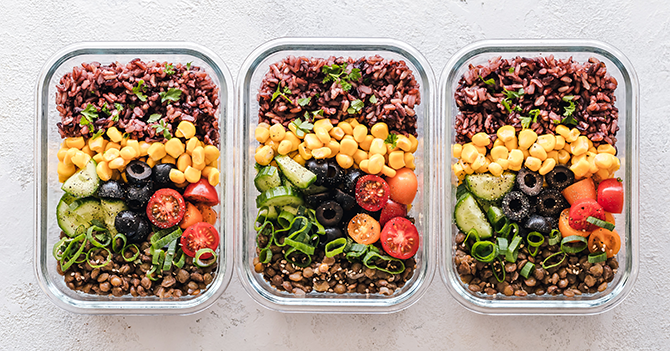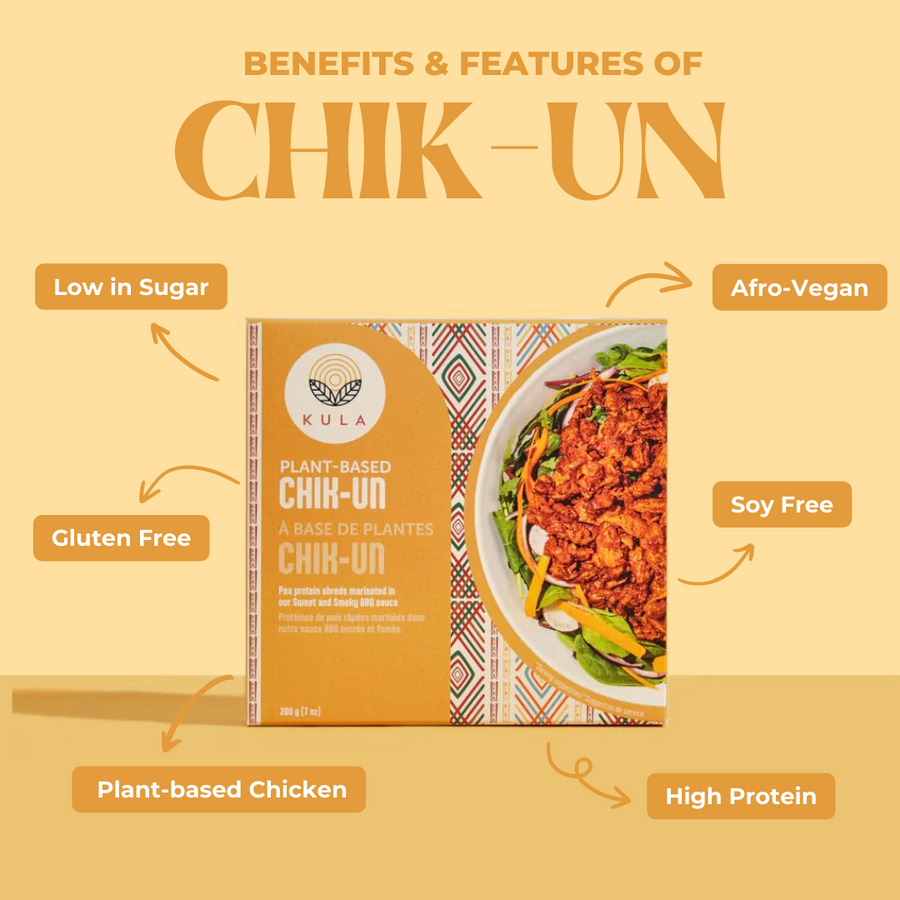Everything About Healthy Food: Benefits of Taking On Plant Based Alternatives
The conversation bordering plant-based diet regimens has gotten considerable attention in recent times. Many individuals are discovering the prospective wellness advantages, nutritional advantages, and environmental effects related to these dietary choices. As individuals come to be much more knowledgeable about their food's impact on health and sustainability, questions arise about the usefulness of taking on such a lifestyle. What specific changes can one anticipate, and just how might these choices reshape not just individual health but also the earth's future?
Recognizing Plant-Based Diets
Although numerous individuals associate plant-based diets mostly with vegetarianism or veganism, these diet regimens can encompass a variety of eating patterns that focus on entire, minimally processed plant foods. Such diet regimens commonly include fruits, vegetables, whole grains, nuts, beans, and seeds, while eliminating or restricting animal items. This flexibility enables individuals to customize their dietary selections according to dietary requirements and personal preferences. Some may adopt a mostly plant-based diet plan while still periodically consuming meat or dairy, usually referred to as a flexitarian technique. The focus stays on including even more plant foods, which can bring about a diverse range of tastes and dishes. Comprehending these various interpretations of plant-based eating is necessary for valuing its accessibility and charm in modern food culture.
Health Conveniences of Plant-Based Foods
The health advantages of plant-based foods are considerable, using a nutrient density advantage that sustains overall wellness. Study suggests that these foods can improve heart wellness and play a vital duty in effective weight monitoring. By including more plant-based choices, people might improve their nutritional choices and promote lasting health.
Nutrient Thickness Advantage
Nutrient density plays an essential function in the health and wellness benefits of plant-based foods, making them a compelling option for those seeking a balanced diet plan. Plant-based foods, such as fruits, vegetables, legumes, nuts, and entire grains, are frequently abundant in crucial vitamins, minerals, and antioxidants while being reduced in calories. This high nutrient density enables individuals to consume fewer calories while still satisfying their nutritional requirements. Furthermore, these foods are loaded with nutritional fiber, advertising gastrointestinal wellness and helping in weight administration. By including nutrient-dense plant-based options, customers can improve their overall wellness, support their immune systems, and lower the risk of chronic illness. Ultimately, the nutrient density of plant-based foods underscores their significance in a health-conscious way of living.
Heart Wellness Enhancement

Weight Monitoring Assistance
In enhancement to advertising heart health, a plant-based diet plan can significantly help in weight monitoring. This dietary approach emphasizes entire foods such as fruits, vegetables, beans, nuts, and entire grains, which are generally lower in calories and higher in fiber compared to animal-based products. The high fiber content assists boost satiation, decreasing general calorie intake. Furthermore, plant-based diet regimens are typically rich in vital nutrients while low in unhealthy fats, making it easier to maintain a healthy and balanced weight. BBQ Sauces. Study indicates that individuals who take on a plant-based way of life tend to have reduced body mass indexes (BMIs) and experience more effective weight reduction compared to those who take in meat-heavy diets. Consequently, accepting plant-based alternatives is a critical choice for efficient weight monitoring
Nutritional Value of Plant-Based Components
Plant-based components are abundant in essential nutrients, providing a diverse array of vitamins, minerals, and antioxidants that add to overall health and wellness. A comparison of protein resources reveals that while animal items are often deemed premium, numerous plant-based alternatives supply sufficient protein and various other useful substances. Understanding the nutritional value of these ingredients can help people make educated nutritional choices.
Important Nutrients in Plants
Nutrient-rich components located in plants use a diverse variety of vital nutrients that add considerably to general wellness. These ingredients are rich in vitamins A, C, and K, which support immune function, vision, and blood clotting, respectively. In addition, plants supply essential minerals such as calcium, potassium, and magnesium, crucial for heart wellness, muscle mass function, and bone strength. The presence of fiber in plant-based foods help digestion and promotes a healthy digestive tract microbiome. Anti-oxidants, discovered abundantly in vegetables and fruits, assistance fight oxidative stress and lower inflammation. Furthermore, lots of plant foods are low in calories yet high in nutrients, making them an outstanding selection for those looking for to keep a healthy and balanced weight while ensuring ideal nutrient consumption.
Contrasting Protein Resources
Protein resources differ considerably in their nutritional accounts, with plant-based active ingredients offering unique benefits. Unlike pet healthy proteins, which frequently have hydrogenated fats and cholesterol, plant proteins tend to be reduced in these undesirable components. Legumes, nuts, seeds, and entire grains are abundant in necessary amino acids, fiber, vitamins, and minerals. As an example, lentils supply high protein material alongside significant iron and folate, while quinoa is a total protein, offering all nine essential amino acids. Additionally, plant-based proteins are frequently accompanied by antioxidants and phytochemicals that support overall health. The shift to plant-based healthy protein sources not only enhances nutritional consumption yet also lines up with lasting dietary methods, reducing environmental effect and promoting lasting health benefits.
Environmental Impact of Plant-Based Consuming
As awareness of environment adjustment expands, lots of individuals are exploring sustainable nutritional selections that can significantly decrease their environmental impact. Plant-based eating has arised as a considerable contributor to reducing greenhouse gas discharges, which are largely associated with animals manufacturing. The cultivation of fruits, veggies, grains, and beans normally calls for less sources, such as water and land, contrasted to pet farming. In addition, plant-based diet plans can result in lowered logging, as much less land is required for grazing animals or growing animal feed. By changing towards plant-based options, customers can support biodiversity and promote much healthier environments. On the whole, right here accepting plant-based consuming not only benefits personal wellness however also stands for a crucial step toward ecological sustainability and conservation efforts.
Overcoming Common Misconceptions
While numerous individuals identify the benefits of a plant-based diet, numerous misunderstandings frequently deter them from fully accepting this way of life. A typical belief is that plant-based diet plans lack adequate healthy protein; nevertheless, various plant sources, such as legumes, nuts, and tofu, supply adequate protein. In addition, some presume that this diet plan is costly, when as a matter of fact, staples like beans, rice, and seasonal veggies can be quite economical. One more misconception is that plant-based consuming is extremely restrictive, whereas it really uses a diverse range of foods and flavors. Lastly, numerous worry that a plant-based diet may result in shortages, yet with proper preparation, individuals can get all necessary nutrients, consisting of minerals and vitamins, while enjoying a broad selection of scrumptious dishes.
Tips for Transitioning to a Plant-Based Lifestyle
Making the change to a plant-based way of life can be an enriching experience, though it commonly requires some assistance to browse the preliminary modifications. Initially, people are motivated to start slowly, including more fruits, veggies, beans, and entire grains into their dishes while decreasing meat and milk usage. Meal planning is vital; preparing an once a week food selection can assist alleviate the modification and avoid final undesirable choices. Checking out cooking methods and new recipes can likewise enhance the experience and keep enjoyment regarding plant-based eating. Additionally, joining support system or areas can supply motivation and share beneficial pointers. Finally, staying educated about nourishment guarantees well balanced meals, preventing shortages while cultivating a healthy, gratifying plant-based lifestyle.
Delicious Plant-Based Meal Ideas
Discovering scrumptious plant-based dish ideas can motivate individuals to accept a more healthy diet plan. One prominent alternative is a hearty quinoa salad, including cherry tomatoes, cucumber, and a vibrant lemon-tahini dressing. An additional favorite is a full-flavored lentil stew, packed with carrots, celery, and great smelling herbs, excellent for a calming supper. For breakfast, over night oats made with almond milk, chia seeds, and topped with fresh berries offer a nourishing beginning to the day. Furthermore, a dynamic vegetable stir-fry with tofu and a variety of vibrant veggies can be a quick yet pleasing meal. Creamy avocado salute on whole-grain bread, sprinkled with flavors and seeds, provides a straightforward yet flavorful snack. These meals display the variety and splendor of plant-based eating.

Regularly Asked Concerns
Can a Plant-Based Diet Plan Give Enough Healthy Protein?
The concern of whether a plant-based diet can give adequate protein is common. Numerous resources, consisting of legumes, nuts, seeds, and whole grains, can fulfill protein needs properly, supporting a balanced and healthy diet for individuals.
Are Plant-Based Diet Regimens Suitable for Kid?
The suitability of plant-based diet regimens for children depends upon mindful preparation. Adequate nutrients should be assured, consisting of minerals, healthy proteins, and vitamins. With proper advice, such diet regimens Visit Website can support healthy growth and development in children.
How Do I Eat in restaurants on a Plant-Based Diet plan?
Eating in restaurants on a plant-based diet involves seeking restaurants with varied menus, requesting modifications, and exploring vegan-friendly alternatives. Preparation in advance and interacting dietary preferences can enhance the dining experience while maintaining nutritional selections.
What Prevail Allergens in Plant-Based Foods?
Typical allergens in plant-based foods consist of soy, gluten, nuts, and seeds - BBQ Sauces. Individuals complying with a plant-based diet plan ought to understand these allergens and read labels very carefully to avoid damaging reactions and assure safe intake
Can Plant-Based Diets Help With Weight Reduction?
Study suggests that embracing a plant-based diet might useful site promote weight reduction due to its commonly reduced calorie thickness and higher fiber web content. This mix can enhance satiety, aiding individuals manage their caloric consumption effectively. Numerous individuals connect plant-based diets mainly with vegetarianism or veganism, these diet plans can include a large range of eating patterns that focus on whole, minimally refined plant foods. Nutrient thickness plays an essential role in the health and wellness advantages of plant-based foods, making them an engaging choice for those seeking a well balanced diet plan. Plant-based diet plans have been shown to considerably improve heart health, as they typically consist of elements that sustain cardiovascular feature. In enhancement to promoting heart health, a plant-based diet can considerably aid in weight management. A common idea is that plant-based diet plans lack sufficient healthy protein; nevertheless, countless plant resources, such as vegetables, nuts, and tofu, provide enough protein.